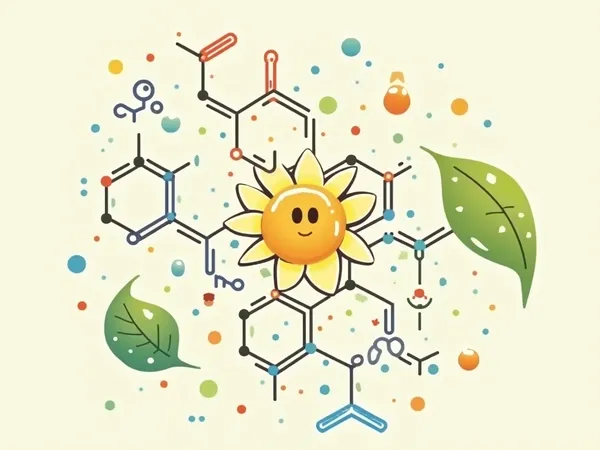
Ready to Start Your Wellness Journey?
Become a Herbalife Preferred Member and enjoy exclusive discounts of up to 25% on all products.
BECOME A PREFERRED MEMBERErgothioneine: The Antioxidant Your Body Needs
Disclaimer: This article is for informational purposes only and should not be considered medical advice. Always consult a healthcare professional or a registered dietitian before making significant changes to your diet or starting any supplementation.
Introduction
Ergothioneine is a naturally occurring amino acid derivative that functions as an antioxidant in the human body. Humans obtain it exclusively through dietary sources such as mushrooms, beans, and certain animal products. Emerging research suggests that ergothioneine may play a role in neutralizing free radicals, maintaining mitochondrial function, and modulating inflammation, but more human studies are needed to confirm its effects.
Role in the Body
Ergothioneine acts as an antioxidant and cytoprotectant, helping to protect cells from oxidative and chemical stress. Unlike some conventional antioxidants, ergothioneine specifically accumulates in tissues prone to oxidative injury, including the liver, kidneys, eyes, and brain. This uptake is mediated by the OCTN1 transporter protein.
Specific Functions
• Protection against oxidative stress: Ergothioneine can scavenge reactive oxygen species (ROS) and reactive nitrogen species (RNS) in cell and animal studies.
• Mitochondrial support: In laboratory models, ergothioneine has been observed to accumulate in mitochondria and help reduce oxidative damage during energy production.
• Anti-inflammatory effects: Preliminary research indicates that ergothioneine may modulate inflammatory pathways in cell and animal studies.
• Cellular protection: Animal studies suggest high tissue levels of ergothioneine may correlate with resistance to certain oxidative toxins.
Effects of Deficiency
There is no established deficiency disease for ergothioneine. However, low dietary intake could theoretically result in lower tissue levels, which in laboratory settings has been associated with increased markers of oxidative stress and inflammation in cell and animal models.
Dietary Sources
Humans cannot produce ergothioneine endogenously; diet is the primary source. Fungi and certain legumes and animal tissues contain measurable amounts.
Best Food Sources
• Mushrooms (oyster, shiitake, king trumpet): 1–7 mg per 100 g fresh weight.
• Black beans, kidney beans: 0.5–1.8 mg per 100 g cooked.
• Whole oats: 0.2–0.5 mg per 100 g.
• Asparagus: ~0.5 mg per 100 g.
• Organ meats (e.g., chicken liver): up to ~1 mg per 100 g.
Supplementation
Ergothioneine supplements are available for individuals with low dietary intake. Human clinical trials have used doses ranging from 5 to 25 mg per day without significant adverse effects reported. Safety and efficacy data are limited, and it is recommended to consult a healthcare professional before using supplements.
Health Benefits
Current research on ergothioneine is mainly from cell and animal studies. Potential effects under investigation include:
• Antioxidant activity: Ergothioneine may contribute to antioxidant defenses.
• Modulation of inflammation: Preliminary studies suggest possible regulation of inflammatory pathways.
Further human clinical trials are required to establish clear health benefits.
Daily Requirements
There are no established dietary reference intakes for ergothioneine. Intake will vary based on diet; including ergothioneine-rich foods can help increase tissue levels pending further research.
Tips for Incorporation
• Add mushrooms to soups, stir-fries, and salads.
• Include legumes such as black beans and kidney beans in meals.
• Use whole oats in breakfast dishes.
• Try organ meat recipes in moderation.
• If dietary preferences limit ergothioneine sources, consider supplements under professional guidance.
Conclusion
Ergothioneine is found in certain mushrooms, beans, and organ meats and functions as an antioxidant in laboratory studies. While preliminary research is promising, more human trials are needed to confirm its effects and determine intake guidelines. Including a variety of ergothioneine-containing foods may contribute to antioxidant intake as part of a balanced diet.
Call to Action: Consider incorporating mushrooms, beans, and whole grains into your meals to naturally increase antioxidant intake. Consult a healthcare professional before starting any new supplements.
Ready to Start Your Wellness Journey?
Become a Herbalife Preferred Member and enjoy exclusive discounts of up to 25% on all products.
BECOME A PREFERRED MEMBER